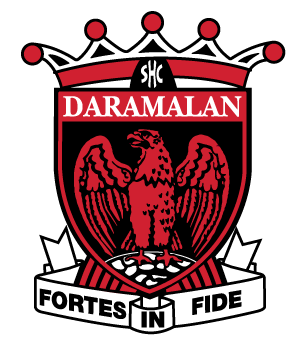Finance and Commerce
Business Studies
Students may elect any combination of the three elective semester units offered in Year 10 as well as attending the compulsory Finance and Commerce unit at some point during Year 9 or Year 10 designed to achieve the goals set out by the ACT Department of Education “Every Chance to Learn” initiative.
Compulsory Unit: Finance and Commerce
In our modern global marketplace, what do I need to know in order to best protect myself financially while finding real opportunities to grow and expand my capability to earn a living? This unit covers financial knowledge and understanding, financial competence, financial enterprise and the financial responsibility facing us as earners, as consumers and as investors. Financial Planning as well as many of the financial situations and decisions that teenagers and young adults face in today’s world will be covered.
Elective Unit: E-Publishing
What makes for good journalism today? A great journalist cares about people and an ideal world. A great journalist can approach a topic as vast as the universe and make it simple and interesting to both Einstein and the new immigrant, who is trying to learn the language. In this unit we will explore the many facets of modern Journalism and investigate what effect the media has in our lives.
The unit has two main aspects:
Journalism
- a code of ethics for journalists: work is original, sources are real and valid, reporting is unbiased and balanced and language is appropriate
- examine press law and media ethics: censorship, copyright law and plagiarism, photographs and ads, libel, privacy rights and laws, substantial disruption, bylines and careful layout
- prepare for interview: plan open ended questions, obtain background material, contact interview source in advance
- use of a variety of sources to ensure completeness, impartiality and diversity with accurate referencing
- utilise photojournalism to tell a story
- create effective headlines and cutlines
- select appropriate quotations, and cite them fairly and accurately.
Desktop publishing
- identify basic elements of design: pica rule, modular design, dollar bill rule, appropriate use of white space, proportion, balance, harmony, contrast, dominance
- edit stories for clarity, completeness, conciseness, and objectivity for publication: grammar, usage, style, writing to specifications
- create effective advertisements following AISA guidelines
- use of appropriate computer software, hardware and peripherals for capturing, importing, scanning and manipulating images
- use of appropriate computer software for design, layout and publication of a completed newspaper.
Elective Unit: Computing
The virtual world now encompasses every part of our lives, what do I need to know to thrive within it? This unit implements the Vocational Education Certificate I in Information Technology (ICA10105) under the scope of the Daramalan College RTO, and therefore a specific outcome from this unit is the student attaining this certificate.
The unit has five main aspects:
History of computers
- background information on how modern computers have evolved and have altered the way that society operates
Networks and their use
- introduction to the jargon and technical specifications of computer networks, and their efficient use
Desktop publishing
- keyboarding and computer manipulation skills
- development of professional documents using Word Processing and Desktop Publishing software and techniques
- creation of multimedia presentations
Spreadsheets and databases
- advanced electronic spreadsheet applications including automatic formulae, graphs and general record keeping
- advanced electronic database applications including data entry, queries, report design and general record keeping
The Internet and HTML programming
- introduction to the Internet as a research and information gathering tool, and also a study of the HTML programming language required to create web pages on the Internet
Elective Unit: Economics, Law and Civics
Big corporations and the Law play important and often inter- related roles in my life. What do I need to know in order to best be prepared for the rights and responsibilities I will inherit after I leave school and start full time work in our society? This unit relates to a basic introduction to the study of Economics and Legal Studies in the College. It addresses the language and logic of both microeconomics and macroeconomics and also the basic structure, function and operation of the legal system.
The unit has four main aspects:
Microeconomics
Resources and opportunity cost, consumers and producers, analysis of supply and demand, decision making at the margin, competition, the effect of government intervention in markets- taxes, subsidies and price controls, the Australian market structure and conduct, public goods and merit goods, internalising externalities, privatisation, an overview of labour market productivity
Macroeconomics
the basic circular flow model. Australia and its resources, the labour market, savings and investment, taxes and government spending, the distribution on income and wealth, the money market, inflation and unemployment, welfare and environmental policies, Australia in the global trade market
Law
the origins of law including indigenous law, the structure and operation of the Australian legal system, the parliament, the courts and the executive, the constitution, international treaties and conventions, criminal law and punishment, alternative dispute resolution
Civil law
tort law, contract law, property law, civil litigation and procedure, family law and statutory procedure, case studies involving relevant issues such as motor vehicles or drugs, that demonstrate the interdisciplinary approach required to illustrate societal issues
